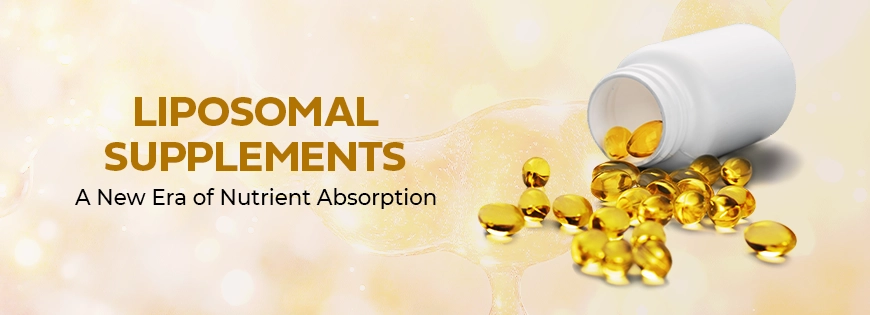Ashwagandha (Withania somnifera), a powerful herb in Ayurvedic medicine, has garnered significant attention in recent years for its wide array of health benefits. Manufacturers in the health and wellness industry are increasingly incorporating ashwagandha into their products, capitalizing on its growing popularity.

1. Understanding the Benefits of Ashwagandha:
Ashwagandha is renowned for its adaptogenic properties, meaning it helps the body adapt to stress and maintain balance. This herb’s benefits are backed by numerous studies highlighting its potential in various health areas:
Stress and Anxiety Reduction: Ashwagandha is perhaps best known for its stress-relieving properties. A randomized, double-blind, placebo-controlled study published in the ” Indian Journal of Psychological Medicine ” found that participants who took ashwagandha extract experienced a significant reduction in stress and anxiety levels compared to the placebo group.
Cognitive Function and Memory: Research indicates that ashwagandha may enhance cognitive function and memory. A 2021 study in Evidence-Based Complementary and Alternative Medicine found that Ashwagandha root extract significantly improved memory, reduced stress, enhanced sleep quality, and boosted psychological well-being in stressed adults. Over 90 days (about 3 months), participants taking Ashwagandha showed better outcomes compared to a placebo group, with no reported adverse effects, demonstrating the extract’s safety and efficacy.
Anti-inflammatory and Antioxidant Effects: Ashwagandha exhibits anti-inflammatory and antioxidant properties, which can contribute to overall health. A preliminary in vitro study assessed the anti-inflammatory effects of Ashwagandha extract. The extract was tested at different concentrations with egg albumin, showing a concentration-dependent inhibition of protein denaturation. Ashwagandha’s anti-inflammatory effect was stronger than that of diclofenac sodium, suggesting that its alkaloid and withanolide contents contribute to its efficacy.
Physical Performance and Muscle Strength: Athletes and fitness enthusiasts may benefit from ashwagandha’s potential to enhance physical performance and muscle strength. A study on young men in resistance training found that taking 300 mg of Ashwagandha twice daily for 8 weeks (about 2 months) significantly increased muscle strength, muscle size, and testosterone levels, while reducing muscle damage and body fat compared to a placebo.
To read more about the benefits: Comparing Bacopa and Ashwagandha
2. Quality Sourcing of Ashwagandha:
To ensure the efficacy and safety of ashwagandha-containing products, manufacturers must prioritize quality sourcing. Here are key considerations:
Source and Cultivation: Ashwagandha should be sourced from reputable suppliers who practice sustainable and ethical cultivation. The region where the herb is grown, soil quality, and farming practices can significantly impact its potency and purity. India is the primary producer of ashwagandha, and organic farming practices are preferred to avoid contamination with pesticides and heavy metals. NaturMed Scientific is one of those sustainable suppliers.
Standardization: Standardizing ashwagandha extracts to contain specific amounts of active compounds, such as withanolides, ensures consistency in product quality. The withanolide content is a crucial marker of the herb’s therapeutic potential. According to a study, a standardized extract of Ashwagandha significantly reduces movement problems, oxidative damage, and nerve toxicity caused by rotenone in fruit flies (Drosophila melanogaster).
Testing and Certification: Comprehensive testing for contaminants, such as heavy metals, pesticides, and microbial impurities, is essential. Third-party certifications, such as USDA Organic, EU Organic or Non-GMO Project Verified, can enhance consumer trust and product credibility.
Also Read: Bacopa monnieri an Amazing Ayurvedic Adaptogen
3. Regulatory Considerations:
Navigating the regulatory landscape is crucial for manufacturers to ensure compliance and safety. Regulatory requirements for ashwagandha products vary by region, and understanding these regulations is vital for successful market entry.
United States: In the U.S., ashwagandha is classified as a dietary supplement. Manufacturers must comply with the Dietary Supplement Health and Education Act (DSHEA) of 1994, which mandates good manufacturing practices (GMP), accurate labeling, and substantiation of health claims. The Food and Drug Administration (FDA) oversees dietary supplements, and non-compliance can lead to severe penalties.
European Union: Based on the information available to the competent authorities of the Member States, this product was significantly consumed by humans within the Union before 15 May 1997. Therefore, it is not classified as ‘novel’ under the provisions of the Novel Food Regulation (EU) 2015/2283, and its market access does not require pre-market authorization according to Regulation (EU) 2015/2283. Manufacturers must provide comprehensive safety data and scientific evidence to gain approval for market entry.
India: As the primary producer of ashwagandha, India has specific regulations for its export and use in products. The Food Safety and Standards Authority of India (FSSAI) sets guidelines for the safe use of ashwagandha in foods and supplements. Compliance with these guidelines is mandatory for products sold domestically and internationally.
Also Read: Health Benefits of Griffonia simplicifolia Extract
4. Market Trends and Consumer Demand:
The growing interest in natural and overall health solutions has propelled ashwagandha into the spotlight. Understanding market trends and consumer preferences can help manufacturers effectively position their products.
Rising Popularity of Adaptogens: Adaptogens, like ashwagandha, are gaining popularity as consumers seek natural ways to manage stress and improve well-being. With a predicted growth rate of 7.3% from 2022 to 2031, the global adaptogens market size, which was valued at $10.3 billion in 2021, is expected to reach $20.3 billion by 2031.
Diverse Product Formats: Ashwagandha is being incorporated into a wide range of products, including capsules, powders, gummies, and beverages. Manufacturers are innovating with formulations to cater to different consumer preferences. For example, ashwagandha-infused teas and energy drinks are becoming increasingly popular .
Consumer Awareness and Education: Educating consumers about the benefits and proper usage of ashwagandha is crucial for market success. Transparent labeling, clear dosage instructions, and evidence-based health claims can enhance consumer trust and product adoption.
Sustainability and Ethical Sourcing: As consumers become more conscious of sustainability and ethical sourcing, manufacturers that prioritize these aspects can differentiate their products in the market. Highlighting sustainable farming practices and fair-trade certifications can appeal to eco-conscious consumers.
Ashwagandha presents a wealth of opportunities for manufacturers in the health and wellness industry. By understanding its benefits, ensuring quality sourcing, navigating regulatory requirements, and aligning with market trends, manufacturers can effectively harness the potential of this ancient herb. As consumer demand for natural and overall health solutions continues to rise, ashwagandha’s popularity is likely to grow, making it a valuable ingredient for innovative and high-quality products.
References:
https://pubmed.ncbi.nlm.nih.gov/23439798
https://pubmed.ncbi.nlm.nih.gov/34858513
https://www.sciencedirect.com/science/article/abs/pii/S0975357512800538
https://www.ncbi.nlm.nih.gov/pmc/articles/PMC4658772
https://www.ncbi.nlm.nih.gov/pmc/articles/PMC4375188
https://www.fda.gov/food/dietary-supplements
https://food.ec.europa.eu/safety/novel-food/legislation_en
https://ec.europa.eu/food/food-feed-portal/screen/novel-food-catalogue/search
https://www.alliedmarketresearch.com/adaptogens-market-A16862
Disclaimer: This statement has not been evaluated by the FDA. This product is not intended to diagnose, treat, cure, or prevent any disease. While the information provided is based on credible references, we do not make any specific claims or guarantees. It is important to consult with your healthcare advisor for personalized advice and guidance related to your health.





